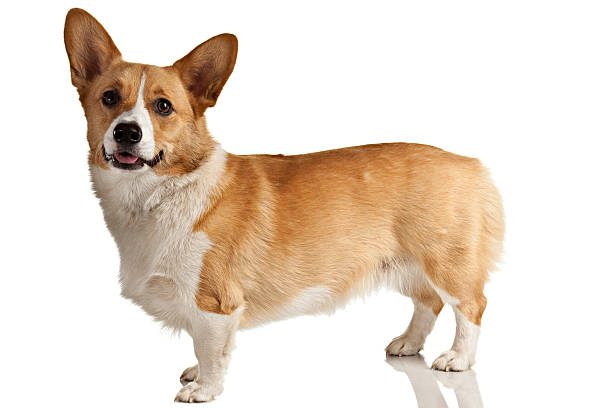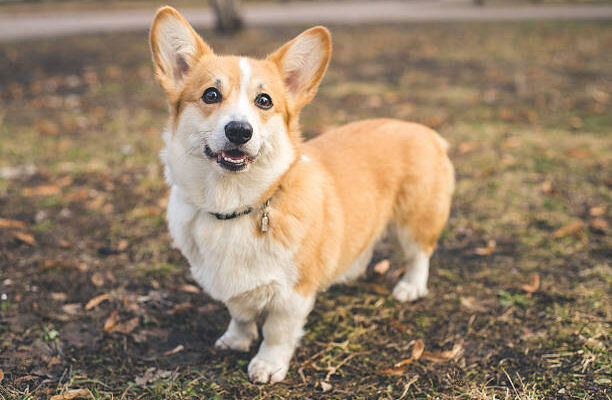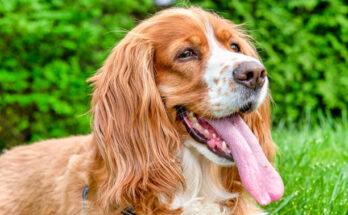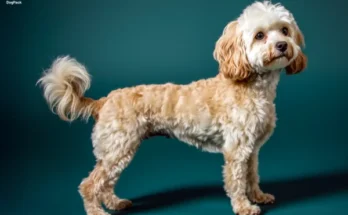The small body of Pembroke Welsh Corgis matches with their large personality traits along with their deep devotion and their joyful nature. Global recognition of this dog stems from its prestigious royal background together with its endearing personality that fuses guardian instincts with alert behavior with loving nature. This extensive overview includes a complete discussion about Pembroke Welsh Corgis starting from their historical background until their behavioral traits and grooming practices and training fundamentals and additional information.
Table of Contents
- Introduction to Pembroke Welsh Corgis
- History and Origin
- Physical Characteristics
- Personality and Temperament
- Training a Pembroke Welsh Corgi
- Exercise and Activity Needs
- Nutritional Requirements and Diet
- Grooming and Hygiene
- Common Health Issues and Preventive Care
- Socialization and Behavior
- Living Conditions and Adaptability
- Fun Activities and Games
- Conclusion
Introduction to Pembroke Welsh Corgis
Pembroke Welsh Corgis connect people to an animal breed which provides attraction through wise characteristics and bold attitude. The Pembroke Welsh Corgi population receives respect because of their hardworking talents and warm personalities along with their social attitude. The brief legs of Pembroke Welsh Corgis never bind their ability to move swiftly and their affinity for active environments among the opportunities for mental exercise.
Pembroke Welsh Corgis can be separated from their related Cardigans because they have tail docking and show a fox-like body shape. Pembrokes demonstrate unwavering devotion and strong desire to please and they make wonderful companions for families and singles together with seniors when owners fulfill their needs.
History and Origin
Ancient Roots in Wales
The Pembroke Welsh Corgi originated more than 1000 years ago in Wales to help cattle herders through farm duty. The Welsh language origin of the breed name combines two words: cor meaning dwarf alongside gi meaning dog thus describing both its height and original work as a yard herder.
Royal Recognition
Queen Elizabeth II caused the breed popularity to soar by developing a bond with Pembroke Corgis. Queen Elizabeth II received her first Pembroke Corgi named “Dookie” in 1933 which triggered the association between royal status and this breed until today.
Difference from Cardigan Welsh Corgi
The two Corgi breeds share identity and employment but Pembroke maintains a slighter physique and receives tail docking as tail standard protocol. Cardigans display extended tails and heavier bone tissue in their structure. The Pembroke Welsh Corgi along with the Cardigan Welsh Corgi maintains equal intelligence while carrying equivalent work values despite their structural differences.
Fun Fact:
Pembroke Welsh Corgis remain central figures in fairy lore since legend depicts them as riding preferences for fairy warriors. Legend states that fairies used to saddle these dogs resulting in the patterns on their coats.
Physical Characteristics
Size and Build
- Height: 10–12 inches at the shoulder
- Weight: 24–30 pounds (males), 22–28 pounds (females)
- Build: Sturdy, low-set, and muscular
Coat and Colors
Pembrokes have a waterproof double coat that extends from their medium length fur throughout their body. Their coats may be:
- Red
- Sable
- Fawn
- Black and tan
White markings on the chest, neck, legs, and muzzle are common.
Shedding
During the annual year Corgis continuously shed their fur but they produce particularly heavy amounts during both spring and fall seasons. Routine coat care is vital for maintaining the wellness of their double-layered fur and preventing excessive fur accumulation throughout their living environment.
Personality and Temperament
The Character Traits of Pembroke Welsh Corgis
Pembroke Welsh Corgis show characteristics of being cheerful companions who exhibit love towards others while maintaining an outgoing personality. People admire their mental abilities as well as their capacity to adapt in different home environments. They often show:
- A herding instinct, including nipping at heels
- Affection for family and children
- Alertness and a protective nature
Are Pembroke Corgis Good Family Dogs?
Yes. The Pembroke Welsh Corgi perfectly suits families who want pets. When Pembroke Welsh Corgis participate in family bonds they feel happiest making children their favorite playmates. Since Pembroke Welsh Corgis exhibit strong herding behavior it is best to supervise small children to stop them from nipping at heels.
Are Pembroke Corgis Good Guard Dogs?
Absolutely. A Pembroke Welsh Corgi provides reliable watchdog service although they will struggle to physically confront intruders. Propelled by alertness and barking they will quickly warn against any undesired events.
Training a Pembroke Welsh Corgi
Intelligence and Trainability
The working intelligence and obedience abilities of Pembroke Welsh Corgis rank at a very high level. Pembroke Welsh Corgis efficiently learn new commands through systemized reward-operated educational techniques.
Basic Training Tips:
Start both socialization training of puppies when necessary
Owners should teach their Pembroke Welsh Corgi by offering rewards and verbal encouragement together with activities.
Consistency with firm leadership should always avoid harsh methods
Continuous practice of the same task will bore a Pembroke Welsh Corgi.
Socialization
Proper socialization enables Pembroke Welsh Corgis to become mature dogs with self-assurance. Your puppy needs contact with multiple humans and animals and exploration of various surroundings in order to establish stable behavior patterns.
Key Socialization Practices:
- Take your puppy to dog-friendly parks
- Schedule playdates with other dogs
- Introduce them to household sounds and textures
- Enroll in puppy obedience classes
Exercise and Activity Needs

Daily Exercise Requirements
The small Pembrokes need at least 45–60 minutes of physical activity per day due to their active temperament. Lack of proper mental engagement might cause destructive or excessive barking conduct in these dogs.
Exercise Ideas:
- Brisk walks twice daily
- Backyard fetch or tug-of-war
- Leashed jogs or hikes
- Herding or agility training
Mental Stimulation
Mental engagement is equally vital. Learning along with problem-solving tasks fulfill the mental needs of Pembroke Corgis.
Mental Enrichment Tips:
- Food-dispensing toys
- Interactive games
- Obedience refreshers
- Teaching new tricks regularly
Nutritional Requirements and Diet
Recommended Diet
Pembroke Welsh Corgis easily develop obesity therefore their diet must be both restricted in calories and focused on nutrition.
Ideal Diet Includes:
- High-quality dry kibble or a vet-approved raw diet
- Lean meats such as chicken or lamb
- Complex carbs like sweet potatoes or brown rice
- Omega-3-rich foods (like fish or flaxseed oil)
- Vegetables such as spinach, peas, and carrots
Feeding Schedule
- Puppies: 3–4 small meals a day
- Adults: 2 measured meals per day
Avoid overfeeding and limit treats to less than 10% of daily caloric intake. Fresh water should be available at all times.
Grooming and Hygiene
Grooming Routine
Because of the dense double coat Corgis possess they shed their fur very abundantly. Regular grooming practices produce necessary results in shedding control and skin health management.
Grooming Essentials:
- Brushing: 3–4 times per week
- Bathing: Every 6–8 weeks
- Nail Trimming: Every 2–3 weeks
- Ear Cleaning: Weekly
- Teeth Brushing: At least 2–3 times per week
Seasonal Shedding
Pembroke Welsh Corgis perform a natural shed process that happens twice annually. Regular brushing should be performed every day throughout periodical shedding to eliminate undercoat buildup and stop coat matting.
Common Health Issues and Preventive Care
Common Health Conditions
The Pembroke Welsh Corgi possesses excellent health yet suffers from some inherited and life-style connected medical challenges.
- Hip Dysplasia
- Degenerative Myelopathy
- Intervertebral Disc Disease (IVDD)
- Progressive Retinal Atrophy (PRA)
- Obesity
Preventive Care
- Schedule annual vet visits
- Keep up with vaccinations and parasite prevention
- Monitor weight and joint mobility
- Use ramps instead of stairs to protect backs
- Choose ethical breeders who test for hereditary issues
Socialization and Behavior
Tips for Socializing Your Pembroke Corgi
Weather you are shy or overly protective about your pet socialization becomes the vital factor to manage both issues.
Best Practices:
- Expose to new people and animals often
- Encourage friendly interactions in public
- Visit new places regularly
- Reinforce positive behavior with praise and treats
Common Behavioral Traits:
Alertness: Naturally aware of surroundings
Playfulness Manifests As Their Use Of Interactive Games And Their Enjoymen
The Pembroke Corgi displays a strong family bond which constitutes their main personality trait.
The early guidance of stubbornness helps minimize its strong-willed traits.
Barking emerges naturally from Corgis especially during periods of boredom or excitement.
Living Conditions and Adaptability
Best Living Environments
Corgis demonstrate excellent adaptability although they experience maximum happiness in daily situations which address their needs. They do well in:
- Homes with secure yards
- Apartments with committed daily outings
- Suburban and rural settings with space to explore
Climate Sensitivity
- Cold Weather: Thick coat provides decent insulation
- Hot Weather: Prone to overheating—provide shade and water, and avoid mid-day exercise
Apartment Suitability
Daily commitment to physical and mental activity from the owner makes Corgis suitable apartment pets. Corgis find success in restricted spaces by receiving proper exercise management.
Fun Activities and Games
Physical and Mental Games
Having entertainment for Corgis remains easy because they show interest in playing games and tackling intellectual activities.
Recommended Games:
- Fetch with tennis balls
- Tug-of-war
- Agility training (tunnels, jumps, weave poles)
- Hide-and-seek with toys or treats
Enrichment Tools
- Treat mazes and puzzle toys
- Snuffle mats
- Frozen stuffed KONGs
- Scent games like find-the-treat
Conclusion
The Pembroke Welsh Corgi exists as a powerful dog who brings intelligence and love along with its mighty spirit in a compact, flexible frame. A combination of proper training combined with correct care along with suitable exercise allows Pembroke Welsh Corgis to develop into lifetime companions that radiate happiness.
Key Takeaways:
Pembroke Corgis require regular mental and physical activities because they have an energetic nature and intelligence.
Because of their friendly nature alongside loyalty characteristics Pembroke Welsh Corgis become great pets for families.
Routine coat maintenance reduces excessive hair loss while maintaining overall coat quality.
A Pembroke Welsh Corgi requires training combined with early interactions with others as essential aspects for learning correct behaviors.
Although Pembrokes maintain a compact appearance they possess big hearted personalities which suit homes that fulfill all their requirements.
The Pembroke Welsh Corgi brings joy combined with love and enchantment when they enter any residential property no matter the size of the home.




